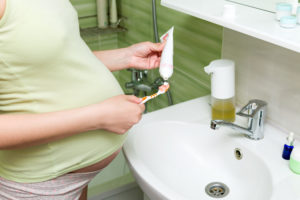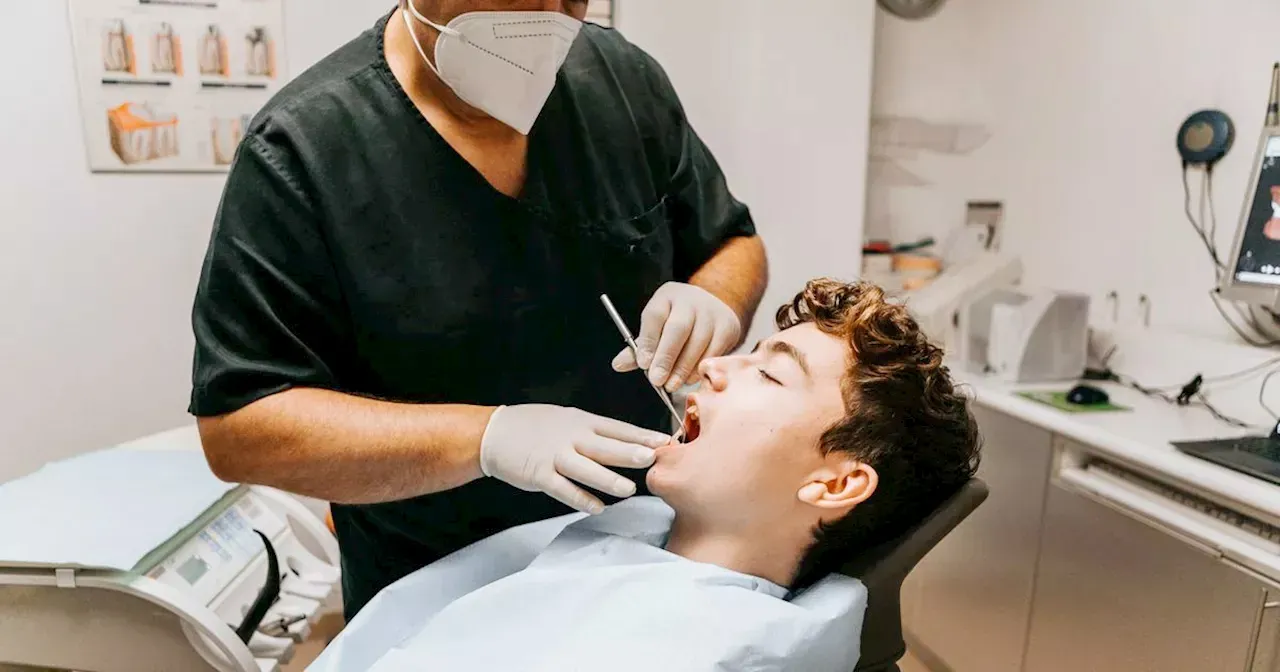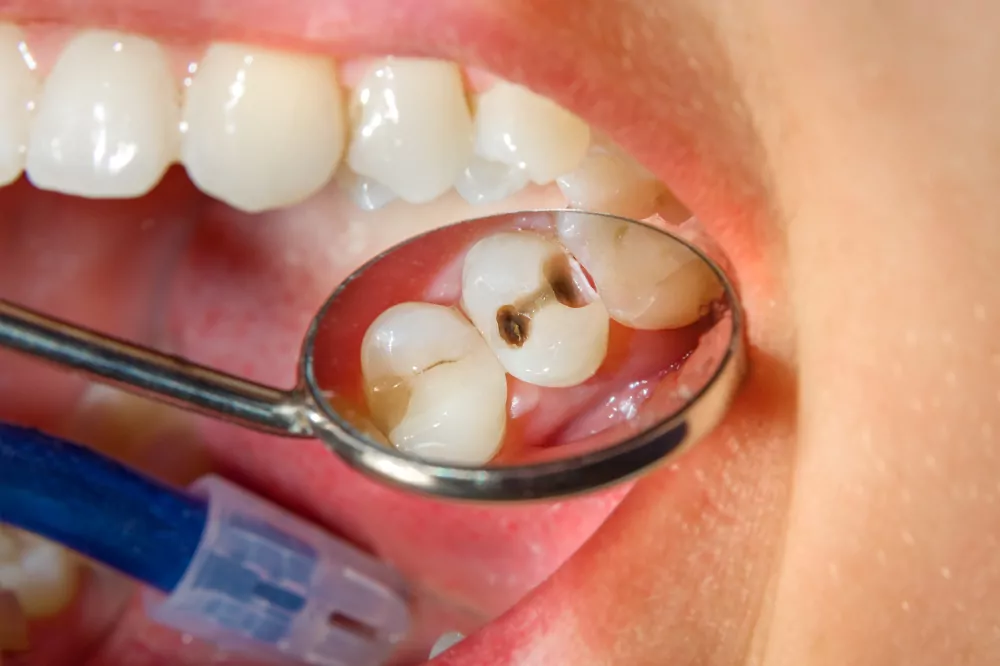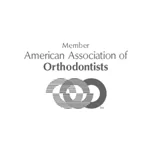
When you’re expecting, your hormones fluctuate, and you may start to see their effects in your mouth. “Higher progesterone levels make pregnant women more susceptible to bacterial growth and developing plaque, while [increased estrogen] causes an increase in the blood flow to the gums, making them more swollen and sensitive,” says Kami Hoss, DDS, an orthodontist in San Diego.
From bleeding gums to shifting teeth, here’s what you can expect to happen to your teeth during pregnancy—plus how to deal—according to a two dental experts.
1. Bleeding gums
The cause: If you’re currently pregnant, you might experience bleeding gums while brushing between the 14th and 30th week of pregnancy, and it’s all thanks to your ever-shifting hormones. “An increase in the levels of estrogen, estradiol, and progesterone can cause pregnancy-induced gingivitis,” says Beverly Hills periodontal plastic surgeon Nicolas A. Ravvon, DDS. Gingivitis is the first stage of gum disease and can occur when the plaque along the gum line isn’t removed properly. Plaque breeds bacteria that infect the gums, causing bleeding and sensitivity. It’s the same sort of plaque that people get all the time, but hormonal changes during pregnancy increase your sensitivity to it.
The fix: Luckily, the gingivitis-induced inflammation of pregnancy is reversible, and should subside once hormone levels return to normal. In the meantime, gently brush twice per day with a soft-bristled toothbrush, which won’t further irritate sensitive gums. Additionally, switching to a natural toothpaste can also help, since those formulas tend to be less abrasive than traditional ones.
2. Shifting teeth
The cause: Teeth shifting during pregnancy is a common phenomenon, thanks to periodontitis, a gum infection that’s exasperated by—you guessed it—hormonal changes. “Periodontitis is a progressive disease that damages the gum tissue and in turn can damage the bone supporting the teeth, accentuating tooth movement,” says Dr. Ravvon. “It is caused by chronic inflammation that is not treated.”
The fix: While the thought of shifting teeth might seem alarming, the good news is that as long as you don’t have any previous conditions or gum disease, the condition is temporary. While it may cause a toothache during pregnancy, it won’t cause tooth loss down the line. According to Dr. Ravvon, periodontitis is largely preventable with good brushing and flossing habits, plus regular visits to the dentist to manage dental plaque and reduce inflammation. When brushing, place the bristles along the gum line at a 45-degree angle so they brush along the tooth surface and gumline, which helps to remove plaque build-up. Floss daily and use an antibacterial mouthwash to help prevent bacteria and reduce further inflammatory reactions in the mouth.
3. Tooth decay
The cause: This one comes from a domino effect of the day-to-day pregnancy symptoms you’ll be experiencing throughout your trimesters. According to Dr. Ravvon, pregnant people are at higher risk of tooth decay due to sugary dietary cravings and morning sickness. Between damaging sugar and the gastric acids that come from vomiting, the enamel in teeth can erode and, in some cases, exacerbate tooth sensitivity.
The fix: To combat the effects of gastric acids, Dr. Hoss suggests something that sounds counterintuitive. “I would advise pregnant women against brushing immediately after vomiting since that’s when the teeth are very vulnerable to erosion and damage.” Instead, he says rinse with warm water and wait before brushing your teeth.
When to see a dentist
When it comes to pregnancy dentist visits, timing is everything. “I recommend my pregnant patients to come in for cleanings at both the beginning and the end of the second trimester,” explains Ravvon, noting that it’s best to wait until after the first trimester to book your appointment. “In the case of women without pre-existing gum disease, the [teeth] changes [you experience during pregnancy] are temporary and benign, meaning these changes are reversible following pregnancy.” Keep up with regular brushing, flossing, and rinsing—and don’t be too alarmed with the inflammation, bleeding, and sensitivity that occurs with a tooth ache during pregnancy. It all just comes with the territory, mama.
This article by Stephanie Montes was originally posted on Well + Good on February 21, 2021.









